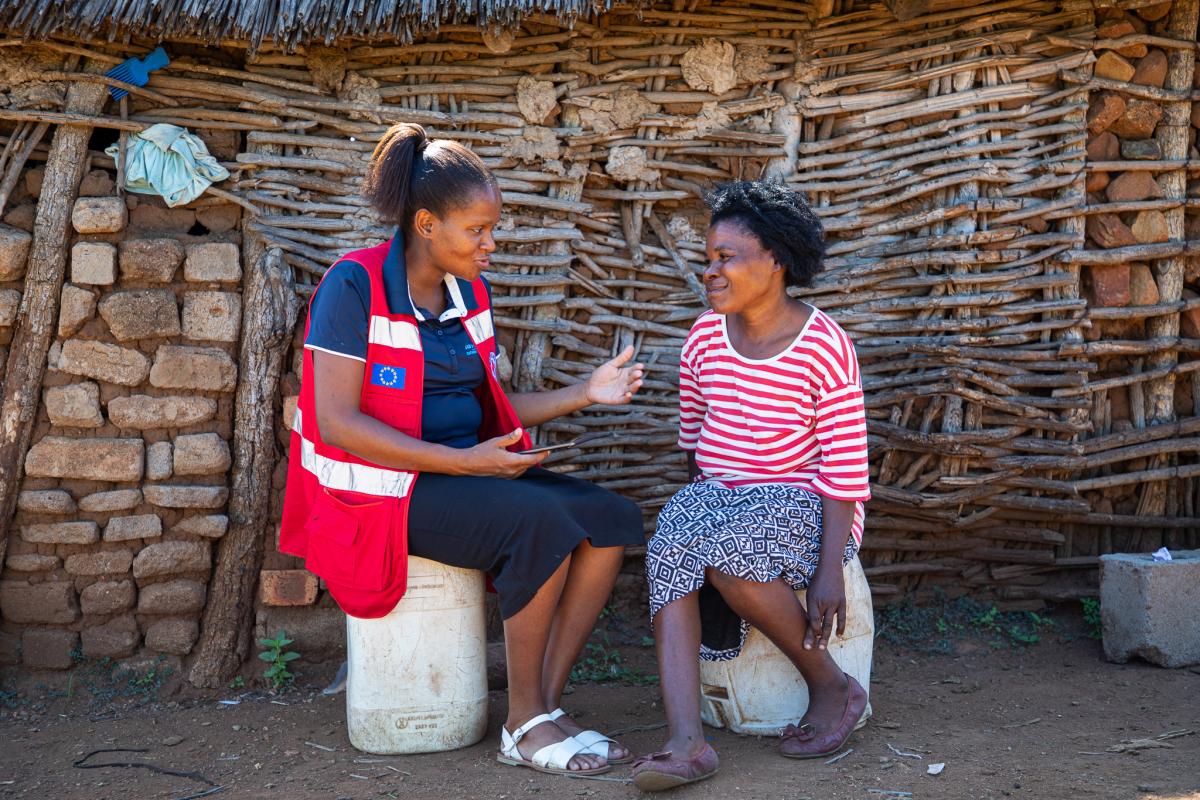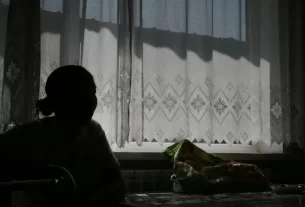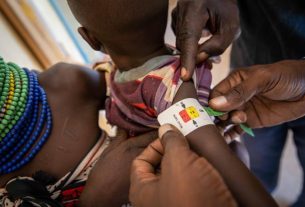In the small south African country of Eswatini, a 3-year EU-funded partnership is using cash assistance to improve people’s lives and increase their financial independence. This includes tackling food insecurity, future-proofing local farming techniques and strengthening the health system to prevent epidemics.
Winile Masuku is one of the 25,500 people to receive this cash support. “Before receiving cash assistance, we were dependent on our neighbours. Now I can take care of my own family,” Winile explained.
This EU-funded partnership is implemented by the Finnish Red Cross, the Baphalali Eswatini Red Cross Society and Belgian Red Cross Flanders as part of a larger partnership between the EU and the International Federation of Red Cross and Red Crescent Societies. Similar projects focusing on disaster preparedness, pandemic preparedness and cash assistance are currently running in 23 other countries across Africa, Asia and Latin America.
Farming for the future
39-year-old Bongani Masuku farms maize near the town of Big Bend in the Lubombo region, one of the hottest areas in Eswatini. As Bongani weeds his field, the temperature has already risen to over 34 degrees.
“The recent heatwaves have really made farming more difficult,” Bongani explains. “The last time the maize was in bloom there was no rain at all, so my harvest was smaller than I expected.”
After attending an agricultural training session earlier that season Bongani received a cash grant of €70 via the EU-funded partnership. Bongani invested this in more drought-resistant maize seeds, and the resulting healthy harvest has helped the whole household.
“This allows me to feed my family, but also to sell some of the crops and get money,” Bongani says.
“This money helps me send my children to school. I have five children with my darling wife. Now I can buy them schoolbooks and other school supplies like pens. If I make enough money, I can also buy them shoes.”
Gardening for change
Local community gardens play an important role in the diet of many people in Eswatini. In the face of a changing climate, this EU-funded partnership is aiming to revive the tradition of community gardens and support climate resilience.
The objective of this project is to farm crop varieties that are better resistant to drought and require little water. This involves trainings from the Ministry of Agriculture on how to garden under extreme climate conditions, after which participants receive a cash grant of around €35 to invest in their gardens.
One of the training’s participants is 40-year-old Sibongile Dlamini. She currently grows maize and pumpkins in her local community garden and hopes to follow the advice of the Ministry and plant onions, beetroots and lettuce.
“The garden offers stability to my family, as I employ myself with this and take care of my family.” Sibongile says. “The harvest from the garden allows me to feed my family, and I can also sell some crops to get money for my children’s education.”
Health in a time of crisis
Longer and dryer summers put people at greater risk of disease – making epidemic and pandemic preparedness more important than ever before. The Baphalali Eswatini Red Cross Society runs 3 clinics in the country, which thanks to EU funding is strengthening their capacity to respond to different epidemics, such as diarrhoeal diseases, tuberculosis and HIV.
Phumlile Gina is a 25-year-old nurse at the Baphalali Eswatini Red Cross Society’s clinic in the Shiselweni region, which specialises in basic health care.
“Each morning we offer health advice, meaning that we tell patients what epidemics are currently ongoing,” explains Phumlile. “Right now we are informing them of vaccinations, especially against coronavirus and tuberculosis. We also highlight proper hygiene: we explain how important it is to wash your hands and also remind people to wash their water containers every now and then.”
Phumlile tells how some diagnoses can even occur coincidentally.
“Sometimes our patients come to the clinic for a completely other reason, like a flu for example. But we may then notice that the growth of the patient’s child is clearly stunted and there is reason to suspect malnourishment.”
But with EU support, Phumlile is able to help.
“We are able to take care of these situations and monitor the condition of the patients. It feels great when a patient comes back to the clinic after 6 months and says that their child is doing great and playing like other children,” Phumlile explains.



